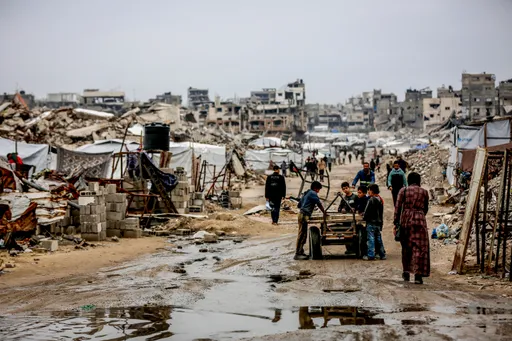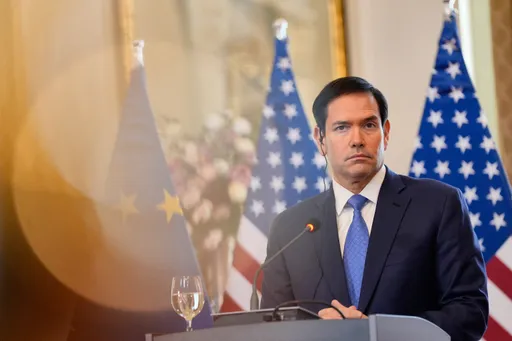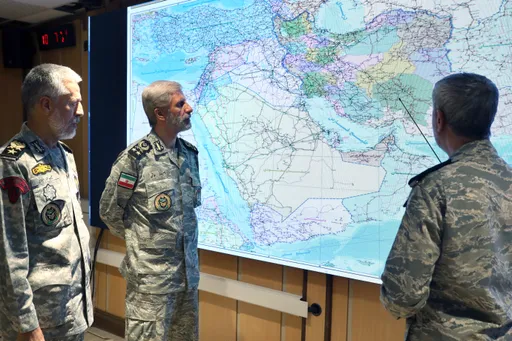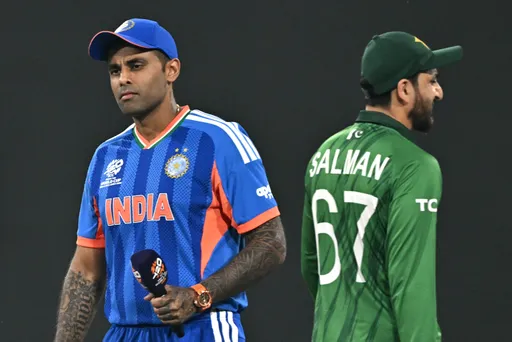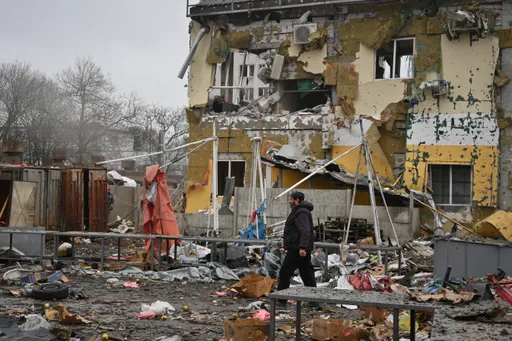The whereabouts and fate of the Director of Al Shifa Hospital in Gaza, Dr Muhammad Abu Salmiya, remains unknown a fortnight after he was arrested by the Israeli military.
Salmiya became the face of Palestinian doctors’ resilience as he regularly updated the world about the dead and the injured as well as the situation of health infrastructure that repeatedly came under the intense Israeli bombardment since October 7.
Israeli army Salmiya into custody on November 23 after Al Shifa was overrun by the Israeli troops, driving out doctors and patients who in many cases were carried by their relatives on their backs to other places.
The World Health Organization (WHO) has expressed concern about Salmiya, saying in a statement late last month that he was detained while carrying out the United Nations supervised evacuation of the hospital.
An Israeli media report says a civilian court recently extended Abu Salmiya’s detention even though he hasn’t been formally charged.
Tel Aviv is using notorious war-time regulations against Al Shifa’s director. Such draconian measures are generally applied on Hamas fighters to keep them incarcerated for months without a trial.
Salmiya is held by Shin Bet, the Israeli Security Agency, and treated as an ‘unlawful combatant’ - a classification Israel uses in its Interment of Unlawful Combatant Law (UCL) to deny prisoners the rights granted under international humanitarian law.
The Israeli parliament enacted the UCL in 2002 to incarcerate prisoners for longer durations without any charge. Since then, Israeli authorities have regularly applied the law on Palestinians from Gaza.
Instead of the Israel state establishing their guilt, Palestinians have to prove their innocence after being detained, the Human Rights Watch says, slamming the law for putting the onus of proof on the accused.
“The secrecy of the evidence makes it virtually impossible for the detainee to meaningfully challenge the allegations.”
Earlier, the Middle East Monitor, quoting Hamas authorities, reported that Israel has increased the duration of his custody by 45 days.
Al Shifa, the largest hospital in Gaza, became a center of refuge for thousands of people who were fleeing Israel's relentless bombings.
Since the outbreak of hostilities, Israel blockaded supply of fuel, food and medicines into Gaza, exacerbating a crisis in which doctors had to operate on patients without anesthesia and treat hundreds of injured on the floor due to shortage of beds.
Despite all the odds, doctors at Al Shifa continued to treat the injured under the leadership of Salmiya who along with half a dozen medical staff refused to leave the hospital premises even when Israeli tanks and troops laid a siege around it.
The Israeli military’s assault on Al Shifa was condemned internationally but Tel Aviv kept up the offensive, alleging that the facility was used by Hamas and sharing a set of visuals as “evidence” that has been debunked and ridiculed on social media.
Although the Israeli allegation that Hamas was operating from the hospital hasn't been independently verified, the Shin Bet says Salmiya is being interrogated in connection with allegations that Hamas used the hospital as its command center.
Israel has long used such allegations coupled with military regulations to indefinitely detain Palestinians.
Human rights groups and legal experts have for years raised concern that such regulations strip Palestinians of the right to a fair trial.
In the occupied West Bank, similar laws are relied upon to detain Palestinians for months without giving them legal access.
Many of them are imprisoned under various military orders that prohibit even expressing a political view or distributing flyers against Israeli occupation.
The military courts have tried around 800,000 Palestinians in the past five decades, according to the UK-based charity War on Want.
Israeli military commander-in-charge has discretionary powers to ban any organisation.
Around 400 Palestinian organisations and NGOs, including student groups, have been prohibited over the years by the military courts, where the conviction rate is almost 99 percent.










